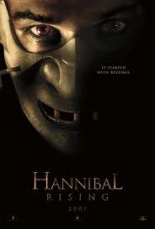
 A mixed-bag movie franchise comes to a disappointing end (or at least one assumes) with Hannibal Rising, a prequel tale of literature and film’s most beloved cannibal. The movie follows Thomas Harris’ book so closely, once wonders if he didn’t write them simultaneously. But it just goes to show that a writer who excels in one medium isn’t necessarily going to excel in another; what worked there falls flat as a day-old Coke here.
A mixed-bag movie franchise comes to a disappointing end (or at least one assumes) with Hannibal Rising, a prequel tale of literature and film’s most beloved cannibal. The movie follows Thomas Harris’ book so closely, once wonders if he didn’t write them simultaneously. But it just goes to show that a writer who excels in one medium isn’t necessarily going to excel in another; what worked there falls flat as a day-old Coke here.
The oddly named and miscast Gaspard Ulliel plays the young Hannibal, orphaned after Nazis kill his parents and out for the blood of the soldiers who slaughtered and ate his little sister eight years prior. Stepping into a role made famous by Anthony Hopkins is no easy feat, but Ulliel doesn’t have anything going for him but the ability to cop an evil sneer. He neither sounds nor looks like Hopkins’ take on the character. In fact, if we’re going to play dopplegänger, he most resembles Saturday Night Live alum Ana Gasteyer.
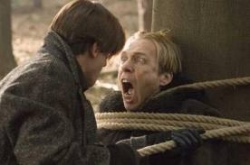 The only scenes that resonate are those in which Hannibal exacts his revenge, and we’re made to cheer him along. Yet they’re not built with any shocks; they simply go through the motions. And what to make of his third-act transformation into Action Hero, leaping atop ships to save Gong Li? At least on the page, scenes like this can’t look silly.
The only scenes that resonate are those in which Hannibal exacts his revenge, and we’re made to cheer him along. Yet they’re not built with any shocks; they simply go through the motions. And what to make of his third-act transformation into Action Hero, leaping atop ships to save Gong Li? At least on the page, scenes like this can’t look silly.
Director Peter Webber’s film at times looks beautiful, almost classier than a genre exercise like this should. I’m sure when Jonathan Demme lensed The Silence of the Lambs, he had no idea it would nominated for an Academy Award, much less take home the top five, but Webber and company act as though they’re intending on a sweep. In going so serious, Rising lacks any sense of diabolical fun that so endeared us to Lecter before, no matter the medium. —Rod Lott

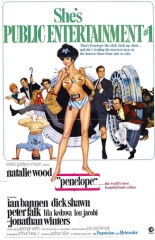
 Not to be confused with the
Not to be confused with the 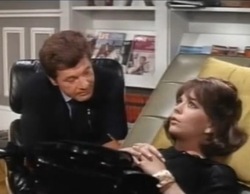 Directed by
Directed by 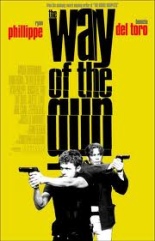
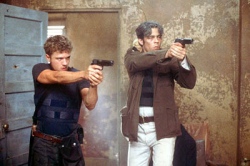 On their tail are Taye Diggs and Nicky Katt as Lewis’ expensive-suit-wearing bodyguards. Also on their tail is James Caan, who never once moves his neck. Also also on their tail is Geoffrey Lewis, for reasons that simply clutter up what should have been a simple story. And we haven’t even gotten to the cops.
On their tail are Taye Diggs and Nicky Katt as Lewis’ expensive-suit-wearing bodyguards. Also on their tail is James Caan, who never once moves his neck. Also also on their tail is Geoffrey Lewis, for reasons that simply clutter up what should have been a simple story. And we haven’t even gotten to the cops.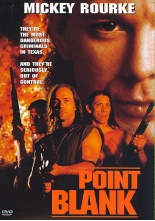
 Like many, I watched the descent of Mickey Rourke’s career with undue fascination. Here was a genuinely talented man, with a handful of superb performances and films under his belt (
Like many, I watched the descent of Mickey Rourke’s career with undue fascination. Here was a genuinely talented man, with a handful of superb performances and films under his belt (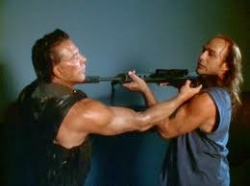 In a performance that defines the phrase “go fuck yourself,” Rourke is Rudy Ray (either the worst or greatest name in action-movie history), a former mercenary called into action when a group of escaped convicts, including his brother, takes over a shopping mall. Mickey mumbles and grunts inarticulately, then goes in, his skin glistening with what I presume to be … oil? God, I hope it’s oil.
In a performance that defines the phrase “go fuck yourself,” Rourke is Rudy Ray (either the worst or greatest name in action-movie history), a former mercenary called into action when a group of escaped convicts, including his brother, takes over a shopping mall. Mickey mumbles and grunts inarticulately, then goes in, his skin glistening with what I presume to be … oil? God, I hope it’s oil. 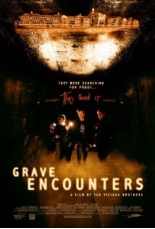
 Had
Had 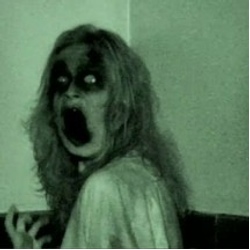 With Sean Rogerson doing a fine job of portraying the host as a total douche (to a point of tangible annoyance), the requisite strange stuff begins to happen following a belabored setup. This includes a woman’s hair being pulled, a window opening on its own, a door slamming on its own, and so on. Things only ramp up at the tail end, but either are highly reminiscent of scenes from other movies — most notably,
With Sean Rogerson doing a fine job of portraying the host as a total douche (to a point of tangible annoyance), the requisite strange stuff begins to happen following a belabored setup. This includes a woman’s hair being pulled, a window opening on its own, a door slamming on its own, and so on. Things only ramp up at the tail end, but either are highly reminiscent of scenes from other movies — most notably,